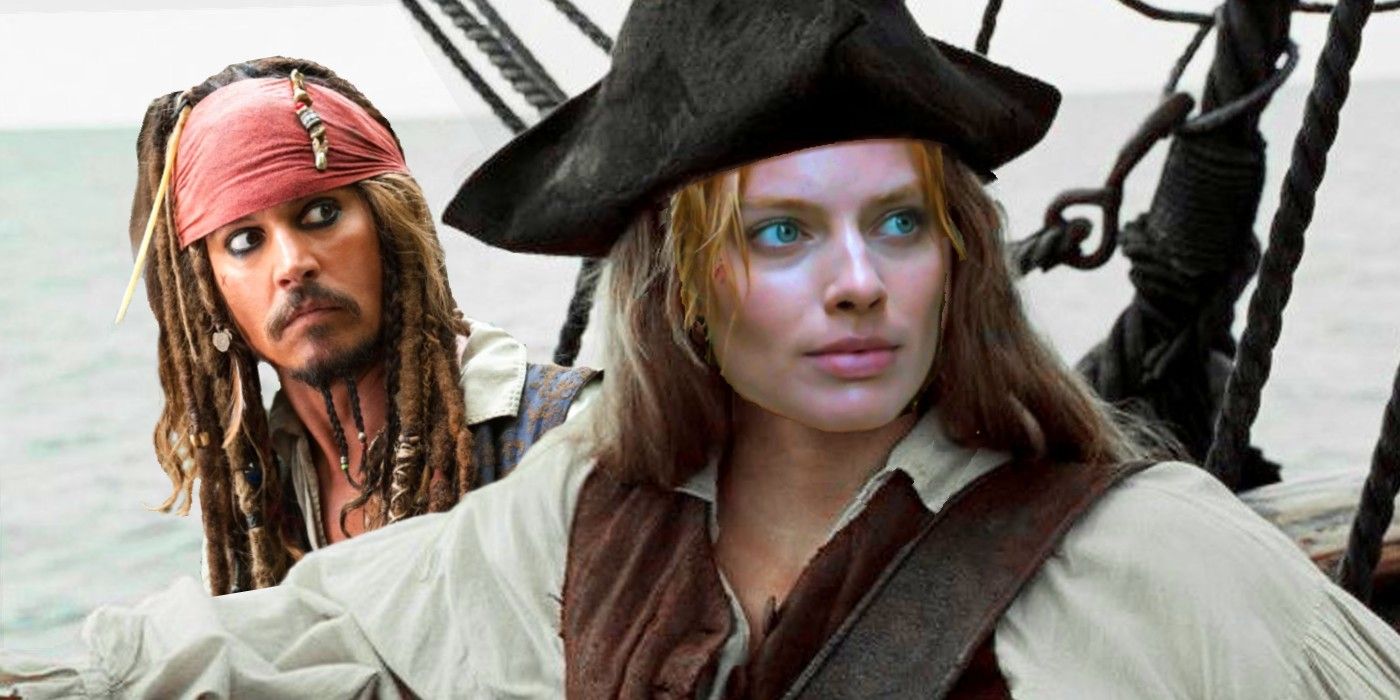
Pirates of the Caribbean seems likely to receive either a reboot or a direct sequel in the next few years, but does the franchise need to continue in either form, or should the series simply be allowed to end? Released in 2003, The Curse of the Black Pearl was a surprise hit for director Gore Verbinski. With a campy central turn from Johnny Depp, an odd genre-blending tone that included horror, comedy, and adventure, and an obscure origin (a Disneyland ride of the same name), Pirates of the Caribbean hardly seemed like major franchise material.
Indeed, Verbinski’s later flop The Lone Ranger proved that the exact ingredients outlined above could result in an expensive and ill-judged folly. The odd pitch for the series, alongside the then-recent failure of Cutthroat Island, makes it no surprise that many industry insiders predicted The Curse of the Black Pearl would be a standalone letdown. However, the Pirates of the Caribbean franchise instead proved a huge success and spawned a string of sequels so flawed that the failure of the original movie may have been preferable.
The first Pirates of the Caribbean sequels retained Verbinski as their director and held on to some of the original’s charm but failed to recapture its magic, while later outings were outright failures. Despite this, another installment in Disney’s profitable franchise is all the more inevitable after Jungle Cruise failed to replace the Pirates of the Caribbean series at the box office. Casting the issue of money aside (as studios so rarely do), the question of whether Hollywood really needs another Pirates of the Caribbean, or whether the franchise should be allowed to end gracefully, is worth interrogating.
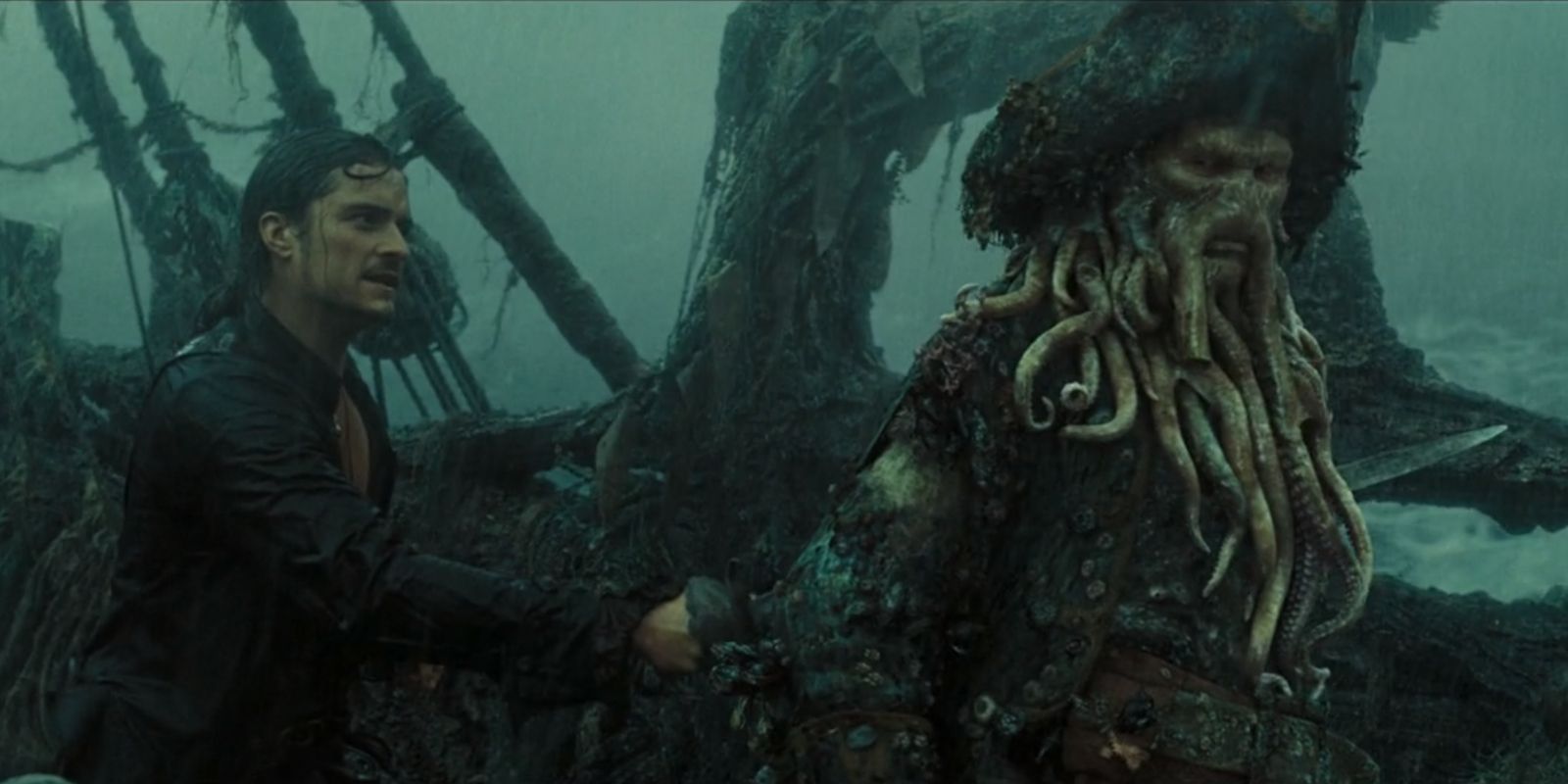
Self-contained, tonally messy, and surprisingly tragic at times, Verbinski’s original trilogy did not stick to the breezy summer blockbuster tone established in the first film and lost the approval of many critics as a result. However, despite the myriad flaws of the second and third Pirates of the Caribbean movies, they contain interesting half-formed ideas and compelling fictional creations, despite their lore not entirely adding up. The plot-hole ridden At World’s End is particularly easy to take apart, but the trilogy closer tries to do something truly original with the material and ends a franchise that began as swashbuckling and quipping action-comedy with a surprisingly tragic, romantic coda.
The Verbinski-directed Pirates of the Caribbean sequels are not, as some over-zealous fans may claim, misunderstood classics, and neither can hold a candle to the quick wit and slick action of The Curse of the Black Pearl. However, they are dramatic, compelling, and bursting with ideas (arguably too many to be contained by their runtime). The admirable attempt to tell a complicated story throughout numerous franchise installments prefigured the MCU’s later, more well-structured experiments, and Verbinski’s ambition was commended by some critics. However, once Verbinski opted not to direct later sequels, the Pirates of the Caribbean franchise lost its way in a more meaningful sense.
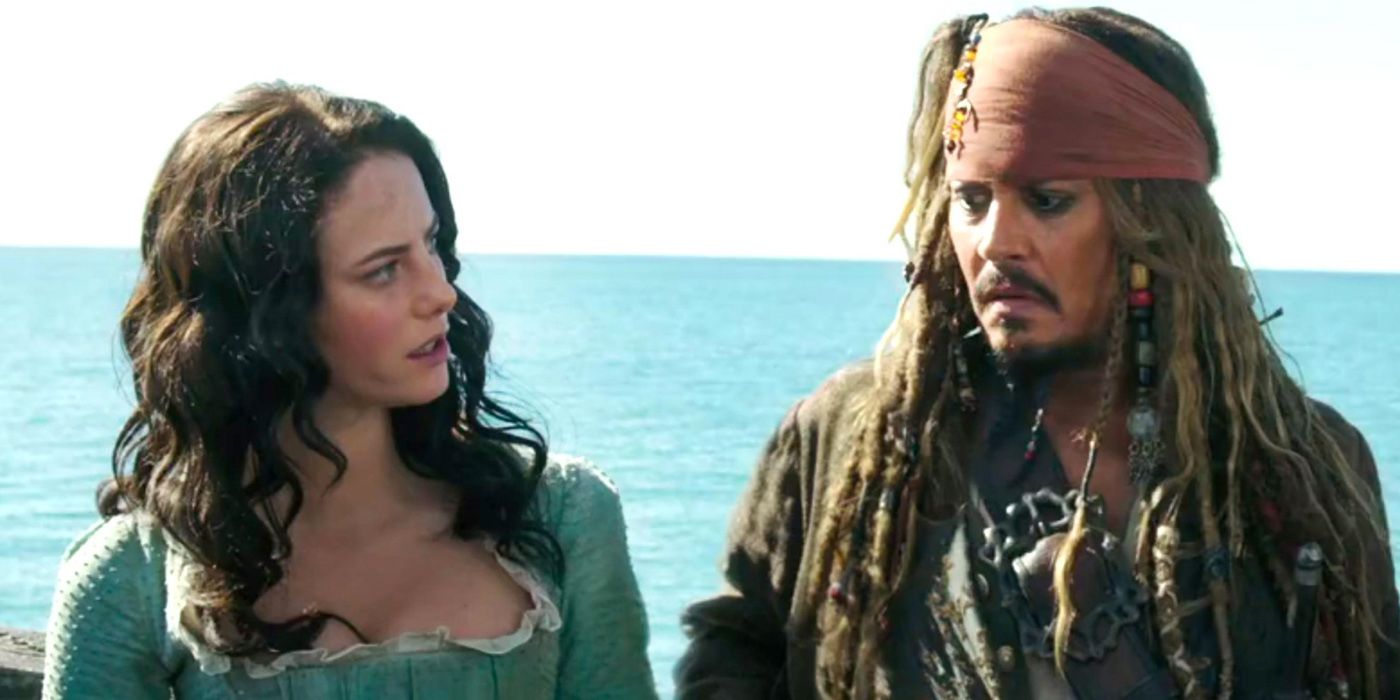
The fourth and fifth Pirates of the Caribbean movies were less divisive, but only in as much as they were universally disliked. Few critics defended the fourth outing, On Stranger Tides, and almost none had kind words for the fifth, Dead Men Tell No Tales, with many stating that the franchise was dead long before Depp’s Jack Sparrow was sent packing by Disney due to the star’s legal troubles. However, despite their critical failure it is important to note that On Stranger Tides employed reliable blockbuster helmer Rob Marshall while Dead Men Tell No Tales introduced Javier Bardem to the cast, meaning there was no lack of fresh talent being injected into the ailing series.
Some have argued that the proposed Margot Robbie-starring Pirates of the Caribbean reboot could salvage the series, but the pedigree of actors and directors involved in earlier failed sequels proves that the franchise needs more than fresh blood to work again. Both bringing back the original director and enlisting new talent have failed the Pirates of the Caribbean series so far, making the prospect of a reboot less than exciting.
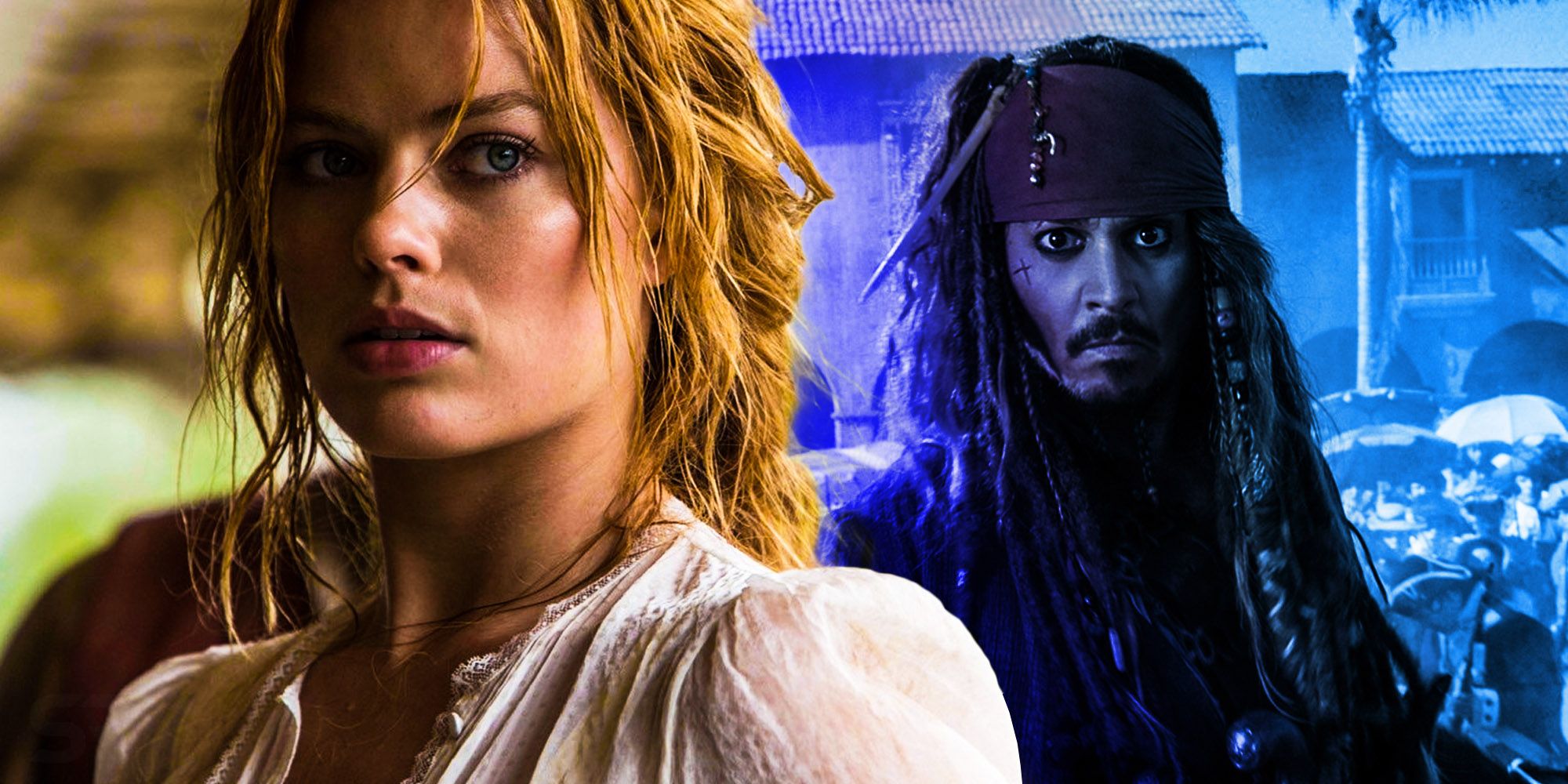
A reboot that reintroduces the world of the Pirates of the Caribbean series via new eyes could potentially work if the new movie makes a clean break and is definitively different from the original movies. However, if the Pirates of the Caribbean franchise needs to drop its recurring characters, supporting cast, and lore just to work, then there is little left that makes it Pirates of the Caribbean, and the reboot for all intents and purposes may as well be an unconnected new property. Some would argue this is exactly what Disney attempted with the suspiciously similar Jungle Cruise (with its historical period, exotic setting, supernatural fantasy elements, and action-comedy-horror hybrid elements), but no new series is likely to make the impact that the already years established Pirates of the Caribbean would — impact that would be ameliorated when viewers discover the reboot is an in-name-only follow-up.
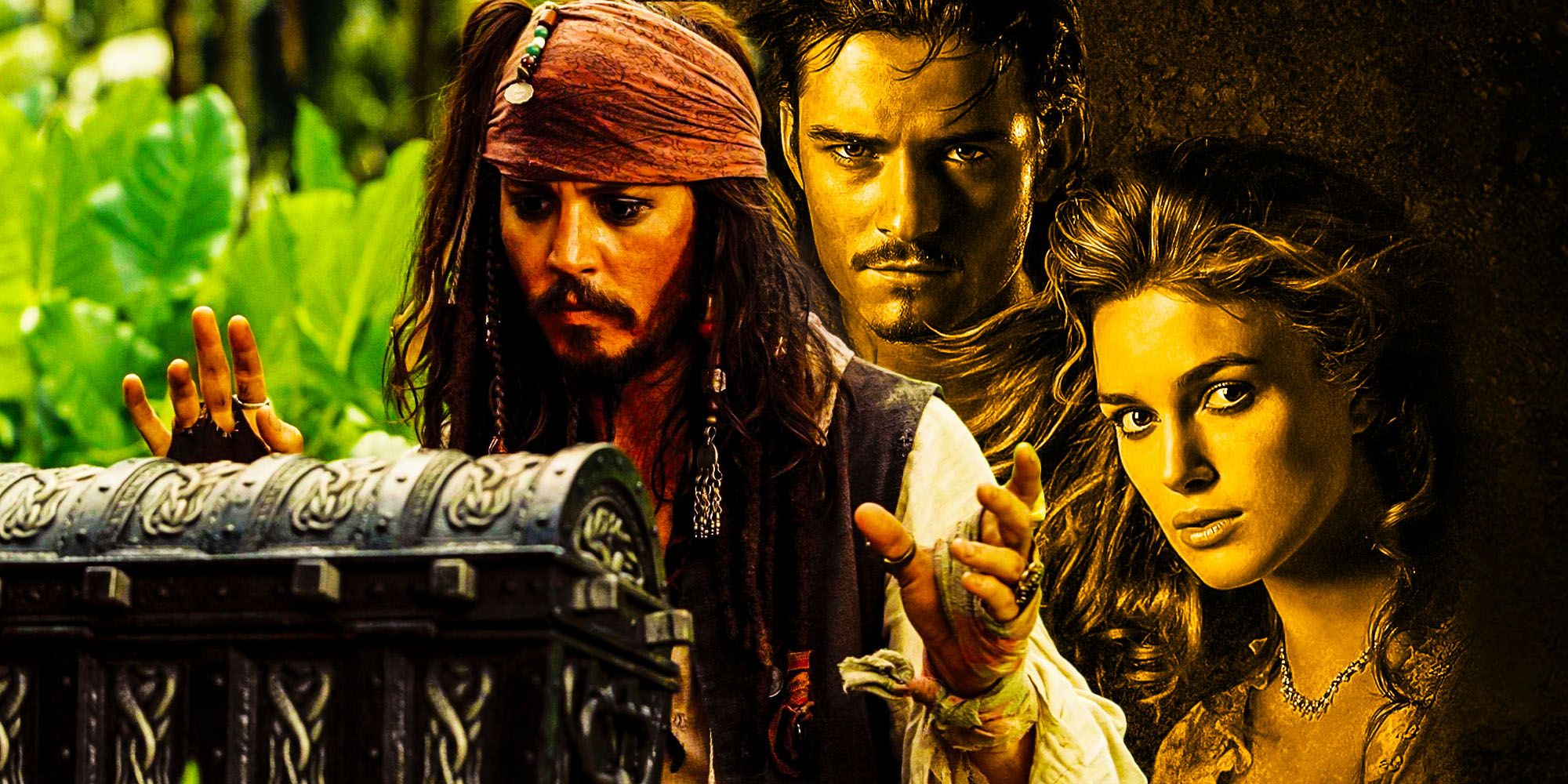
Without Depp’s Jack Sparrow returning, the Pirates of the Caribbean franchise has lost its main draw. The series could attempt to continue but it is unlikely that audiences would be interested in Pirates of the Caribbean sans Sparrow, as the character is tied to the interest that most fans have in the franchise. Despite the over-reliance on Depp in later sequels, the character’s essence is what made the original The Curse of the Black Pearl a standout success and what separates it from every later sequel.
The freewheeling combination of comedy, menace, and charm embodied by Jack Sparrow was mirrored in the fast-changing tone of the original movie, where Verbinski’s sequels settled into darker territory and the later installments were content to paddle in a more purely comic territory. As proven by the underperformance of The Suicide Squad, Robbie does not have the same unique appeal for audiences as Depp and a reboot of the Pirates of the Caribbean series starring the actor is likely to end up being seen as an imitation rather than a legitimate continuation precisely because of Depp’s absence. Ultimately, the appeal of the Pirates of the Caribbean is inextricably linked to the character of Jack Sparrow, making a successful sequel all but impossible — although that has never stopped Hollywood before now.
from ScreenRant - Feed https://ift.tt/3DOPALE

0 Comments